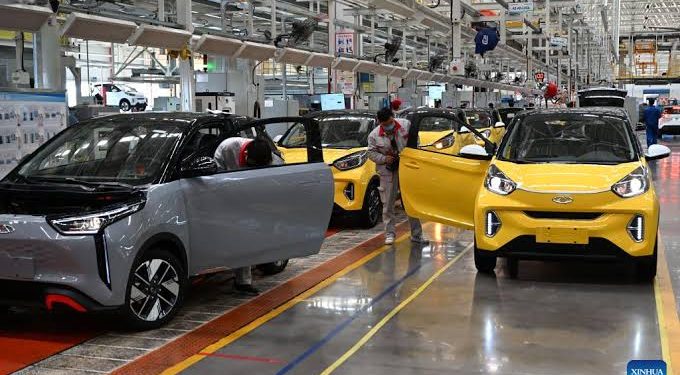A Kenyan autodealer, Afrigreen Automobile, is set to benefit from a US$20 million investment from Chinese EV manufacturer Chery – which will be used to establish an assembly plant in Nairobi.
- The firm has appreciated the deal, citing that it will hasten the uptake of electric vehicles and facilitate the creation of 3,000 direct and indirect jobs.
- On the other hand, Chery stated that the partnership was considered after the EV firm determined that Kenya’s skilled workforce and reputation as an economic hub made it a formidable launch pad for its African expansion.
- The deal comes days after another Chinese EV maker, NETA invested in a Kenyan firm called Moja EV Kenya, which is projected to assemble 250 EVs every month.
“We are planning to start the assembly within one month’s time. We are looking at something about 5,000 to 6,000 vehicles assembled every year for the next couple of years as we look for the market, both in Kenya and the COMESA region,” said the global head of Future Mobility of Afrigreen Automobile, Nishant Mishra.
Principal Secretary in the Ministry of Investments, Trade, and Industry, Abubakar Hassan Abubakar, attended the event where the deal was ratified. He lauded the co-operation between foreign investors and local vehicle dealerships which accelerated Kenya’s vision for industrialization, as well as ramp up the production of electric vehicles to meet demand.
“The assembly plant will help the transport sector to become greener as we currently have about 4,000 e-vehicles against a population of about 1.7 million cars on the roads,” Hassan said.
Chery’s Chinese delegation mentioned that Kenya’s cordial relations with China was a good step in pioneering further investment into the sector. Electric Vehicles are popular in the Asian country, a factor which has enabled manufacturing firms to viably rival their Western-based counterparts.
The Chinese EV market is dominated by BYD and Tesla, according to 2023 sales records reported by EV-Volumes.com. Smaller EV firms like Chery and NETA are attempting to explore newer markets in Africa, other parts of Asia, and Australia.
Moreover, penetration into the US and Europe has been hindered by protectionist tariffs and quota restrictions placed by regulators. In Africa, local EV firms are still dependent on funding from foreign investors and even though the investment has seen growth over the years – uptake is still slow. This is largely due to unavailable charging infrastructure and unpredictable power cycles.
See Also:




